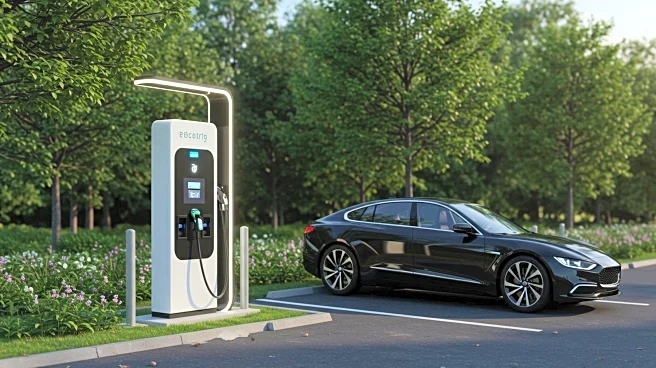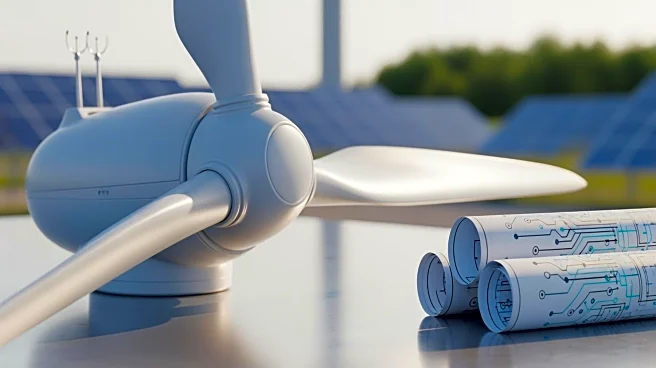What is the story about?
What's Happening?
Ford has announced a significant investment of $2 billion to transform its Louisville Assembly Plant into a facility capable of producing a new generation of affordable electric vehicles (EVs). The initiative includes the development of a midsize pickup truck with a base price of $30,000, expected to launch in 2027. This project involves a skunkworks team that has worked to create a line of EVs that can be manufactured faster, more efficiently, and with fewer parts, while maintaining profit margins. Ford's CEO, Jim Farley, acknowledged the risks involved, stating that there are no guarantees with this project due to the innovative approaches being implemented. The new manufacturing technique, which uses more automation and unicastings, represents a departure from Ford's traditional assembly methods.
Why It's Important?
This investment is crucial for Ford as it navigates challenges such as tariffs, slower-than-expected EV demand, and competition from Chinese automakers. By focusing on affordable EVs, Ford aims to maintain its relevance in the automotive industry and preserve jobs in the United States. The success of this project could set a precedent for other automakers facing similar pressures, potentially influencing industry standards and practices. The move also highlights the growing importance of EVs in the automotive market and the need for manufacturers to adapt to changing consumer preferences and regulatory environments.
What's Next?
Ford's new manufacturing technique is specific to the design of the vehicles being produced at the Louisville plant, which means it cannot be easily replicated at other facilities. The company will need to monitor the project's progress closely to ensure its success and address any challenges that arise. Stakeholders, including union leaders and employees, will be watching the development closely, as the project's outcome could impact job security and the future of manufacturing in the U.S. Additionally, Ford's competitors may respond by accelerating their own EV initiatives to keep pace with the evolving market.
Beyond the Headlines
The shift to more automated and efficient manufacturing processes raises questions about the future of labor in the automotive industry. While Ford's project aims to preserve jobs, increased automation could lead to changes in workforce dynamics and require new skill sets. The ethical implications of balancing technological advancement with job preservation will be an ongoing consideration for Ford and other automakers. Furthermore, the project's success could influence public policy related to manufacturing and environmental standards, as governments seek to support sustainable practices and economic growth.
















